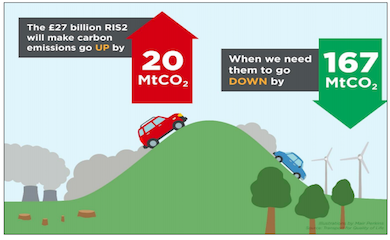Background
As people travel less and workplaces shutdown the world is consuming less energy and emitting less CO2. Furthermore the international aviation sector will be limiting its future emissions with reference to a 2020 baseline. In this article we consider whether the Coronavirus pandemic will have a lasting positive impact on Carbon dioxide emissions.

Figure 1 China Airlines Boeing 777
Temporary Emissions Cuts
Much of the world is in self isolation or lockdown and there are travel bans in force. Many businesses and some factories are shut down. This inevitably means the world is burning significantly less fossil fuel. Exact figures are not readily available but the following have been reported:
- 36% reduction in coal burnt in Chinese power stations
- 29% reduction in Chinese coal imported
- 34% reduction in Chinese oil refinery production
Analysis of UK electricity consumption for March shows a reduction in average consumption from 31.7 GW in 2019 to an average consumption of 29.6 GW in 2020 – for the period 10 to 30 March. Further analysis suggests that overall UK national electricity demand is down by around 5 to 10% as a result of Coronavirus.
Forecasts are that US demand for petrol is due to fall by 50% which is equivalent to 5% of worldwide demand for oil. Demand from other countries and the aviation sector is also falling meaning that there will be a big drop in world consumption for a few months.
There will be a big drop in carbon dioxide emissions for a few months. The consensus is that this drop, on its own, is minor and will not have a significant positive impact on climate change.
Permanent Impacts
There are a number of ways, however, that the Coronavirus crisis could result in a permanent reduction in carbon dioxide emissions. These are:
- People will get used to remote working so they need to travel less – people work from home more and travel to face to face meetings less – cutting their carbon footprints as a result
- Governments have demonstrated that they can change how we live and what we do when presented with clear scientific evidence of a crisis – they can now afford to be bolder and take more action on climate change
- Future aviation carbon emissions are capped relative to 2020 baseline emissions. Overall 2020 emissions will be lower than expected due to Coronavirus. This could mean that emissions in future years will have to be correspondingly lower too – because 2020 is the baseline year
- The world will change dramatically over the next few years as a result of the fallout from Coronavirus. Clearly there will be some winners and some losers. It is a lot easier to change things when the world is changing anyway – meaning implementing low carbon policies could be easier and quicker.
Conclusions
The world shutdown caused by Coronavirus will cut world CO2 emissions significantly for a few months. The post Coronavirus world is going to be a lot different and could have significantly lower carbon emissions as an indirect result.
About Pager Power
Pager Power helps developers resolve technical issues that could prevent them from obtaining planning permission. For more information please get in touch.
Image accreditation: https://commons.wikimedia.org/wiki/File:China_Airlines_Boeing_777-300ER_B-18003_(22891179171).jpg



